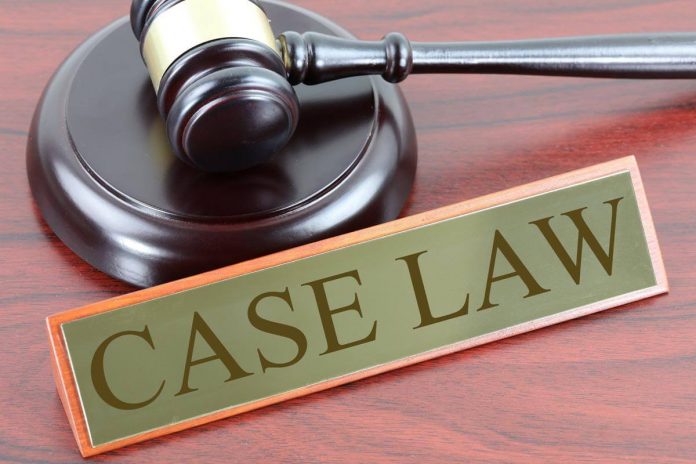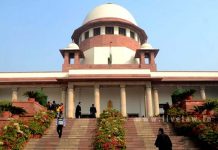This article is written by Udita Prakash, a student at UPES, Dehradun, pursuing BBA LLB(Hons.), herein this article deals with the case analysis of Ganesh Das & Anr Versus State of West Bengal.
Table of Contents
Introduction
Victims do not have to be part of a criminal charge for conviction of a crime against men, women, or children and are punished under the provisions of the Indian Penal Code or Protection of Children from Sexual Offence Act or other criminal provisions applicable to crimes affecting the human body. For all women/children, all terms are understood in the context of their respective laws dealing with such abbreviations. This auspicious decision was approved by the Calcutta High Court by Hon’ble Judge Thottathil B. Radhakrishnan and Hon’ble Justice Aniruddha Roy in the case of Ganeshdas v. State West Bengal [CRA 228 2020]. In the case of Ganesh Das against the state, the Calcutta High Court has met the victim’s legal rights, eligibility, and interests in the process of appealing the conviction if the state exercises its diligence and vigilance. The role of the criminal procedure and the prosecutor in performing his duties and responsibilities in terms of the provisions of the Code of Criminal Procedure (Cr.P.C.) and other applicable laws.
How are victims perceived by the criminal justice system
The “victim” state is a controversial concept, with many categories and subsets identified. There are different types of victims, such as those who deserve it and those who do not, but the main difference is between the primary victims, who directly experience crime, and the secondary victims, such as their families. There are several definitions of a person who has a victim status. After the enactment of the laws related to victims, crimes, and domestic violence, there were rights that were outlined in the Code of Criminal Procedure, providing information on what to expect from the criminal justice system and reporting offences committed. Includes rights such as written approval of the police which will inform us why a decision has been made to prosecute the suspect. Article 32 of the Indian Constitution imposes an obligation on the Secretary of State for justice to issue a code of conduct to deal with victims of crime, while Section 48 of CrPC tells that a police officer may, for the purpose of arresting without warrant any person whom he is authorized to arrest, pursue such person into any place in India. It also imposes an obligation to appoint members as witnesses. Promote good practices in treating victims. Therefore, it is clear that the statutory and detailed statutory guidelines issued to criminal justice institutions have provisions designed to guarantee the right to serve victims of crime. However, problems arise when it comes to fulfilling such obligations.
An analysis of the case of Ganesh Das & Anr v. State of West Bengal
The petitioner challenges the notice dated July 11, 2017, issued by the Secretary of State of the Government of West Bengal and the Food Commission of the Food Supply Authority, which has established a good distribution policy for kerosene by the Government of West Bengal. (SK oil for short) to ration cardholders. Some petitioners are owners of ration cards, while others are the West Bengal Kerosene Dealers Association and the Kolkata Kerosene Dealers Association.
A division bench of the Calcutta High Court comprising Justice Thottathil B. Radhakrishnan and Justice Aniruddha Roy has held that in case of an appeal from a conviction in an offence committed against a child or a woman, the victim is not a necessary party to the appeal.
According to the facts of the case, the appellant was found guilty and convicted of an offence punishable under Section 376 (3) of the Indian Penal Code and Section 6 of the POCSO Act. He was sentenced to a rigorous prison term of 20 years and to pay a fine of Rs. 10,000/- and in the absence of being subjected to rigorous imprisonment for one year for the offence punishable under Section 376 (3) of I.P.C. It was ordered that the victim is entitled to receive the fine of Rs. 10,000/- if done, in view of the second condition of Section 357 of Cr.P.C. The problem arose that the appeal would be flawed since the victim had not been a party to this request.
The contention of parties to the case
The appellant was found guilty and convicted of being punished under Section 376 (3) of the Indian Penal Code and Section 6 of the Protection of Children from Sexual Offences. He was sentenced to 20 years in prison and fined, and also one year of imprisonment was imposed for crimes punished under Section 376 (3) of the Indian Penal Code. The appellant was found guilty and was convicted of a crime punished under Section 6 of the POCSO Act, and sentenced to 10 years in prison and Rs 1 Lakh fine. The Calcutta High Court has ordered victims to pay the fines under Section 357 of Cr.P.C. In this appeal, the appellant placed a person described by name among the defendants and identified that person as a victim.
The learned amicus curiae referred to the provisions of Section 23, 24 (5), and 33 (7) of the POCSO Act to point out that there is overwhelming legislative momentum to ensure the protection of victims. Citing the judgment of the Supreme court, Vishaka v. the State of Rajasthan,(1997) the lawyer stated that the content of international conventions and norms is significant for the interpretation of constitutional guarantees in the absence of national law that occupies the field and that Article 51 of the Constitution should be read together with Article 253 of the Constitution and that in the absence of contrary legislation, Indian municipal courts would respect the norms of international law. The appeal was rejected by the State, stating that it is defective since the victim has not become a party.
Findings of the Court
In this case, the learned court held that the victim’s legal rights, eligibility, and interests are met if the state plays its role diligently and carefully in the criminal procedure and the performance of the prosecutor’s duties and responsibility. Responsibility to respond to the provisions of Cr.P.C. and other enforced laws. The order was issued in a criminal appeal filed by Ganesh Das, convicted of a crime punished by the Court of the first instance under Section 376(3) of the IPC and Section 6 of the POCSO Act.
The district court has determined that victims of sex crimes subject to IPC or POCSO law have the right to defend the cause in an appeal derived from a conviction. However, it is the duty of the State and the Ministry of Public Affairs to comprehensively address all aspects of criminal appeals against convictions and protect the interests of victims, even if the victim is not involved in all parties. The court further combined the contents of Section 374 and Section 385 of CrPC, which does not provide for the issuance of a notice of appeal to the victim, but the notice to the plaintiff, if an appeal is provided.
Furthermore, the procedure to be followed in all these remedies should be to deal with the remedies without insisting on the victim’s implementation. In cases where, in addition to the assistance of the Prosecutor representing the State, the appellate court deems it necessary to provide additional assistance to ensure the interest of the victim through legal assistance, the HCLSC (High Court Legal Service Committee) or DLSA (District Legal Service Association) as in the question may be required, to provide assistance, through an impaled defender or another determined by the HCLSC or DLSA. However, even in such cases, the Court will insist that the principles related to the protection of dignity and privacy and the modality of safeguarding those values, set forth above, are scrupulously respected.
Order of the bench
- The victim is not a necessary part of a criminal appeal for conviction of crimes against women or children, punishable under the provisions of the I.P.C. or POCSO Act or any other criminal provision that is applied in relation to crimes that affect the human body against any “woman” and/or “child”, both expressions being understood in the context of the respective legislation that deals with said crimes.
- No appeal of this type would be flawed in the absence of the victim’s implementation.
- The procedure to be followed in all these resources would be to attend to those resources without insisting on the victim’s implementation. In cases where, in addition to the assistance of the prosecutor representing the State, the appellate court deems it necessary to provide additional assistance to ensure the interest of the victim through legal assistance, the HCLSC or DLSA in question may be required to provide assistance through a splicer or other advocates as determined by the HCLSC or DLSA. However, even in such cases, the Court will insist that the principles relating to the protection of dignity and privacy and the modality of safeguarding those values, set forth above, are scrupulously respected.
- As a necessary corollary, the resources of the victims would be governed by the provisions of Nipun Saxena; however, there should be no question about how the victim would be described. It would suffice for the title of the case of said appeal to show that the appellant is the victim in the criminal case identified by the number, the court below, and/or the police station. This will protect the victim from being subject to disclosure of that person’s identity.
Perceiving the judgment as a good precedent
The judgment made by the Calcutta High Court is a good precedent because there are millions of people as victims of crime each year, according to the National Institute of Justice. The entire judicial process and the treatment of victims by criminal justice/social welfare professionals can have a significant impact on the victim’s recovery process. The reaction to the crisis is how the victim of the crime reacts to the act itself. The effects of crime on victims generally fall into three categories: physical/psychological or emotional, and financial. Physical effects range from scars and bruises to more serious and visible injuries to the body. Psychological effects are the emotional damage that occurs after a victim experiences a criminal act. This can range from depression and isolation to the induction of post-traumatic stress disorders and other mental health conditions. How a crime affects a victim is generally based on the severity of the crime committed and the mental state of the victim at that time. Second, there are financial losses that can occur if the property is stolen or destroyed. Though victims of crime may look different from person to person, they experience some trauma after the act. Analysing all these aspects I think that this precedent passed was a good one and the necessary one.
Conclusion
In conclusion, service and procedural rights are clear for successive governments to make efforts to place crime victims at the heart of the criminal justice system. The implementation of victim code to ensure minimum service standards represents a clear attempt to increase victim satisfaction and prevent secondary damage. Personal victim statements, on the other hand, provide a means for victims to play a role. Which is most important in any criminal case. However, in order to ensure the objectivity of the law and impartiality within the hostile system, the extent to which they can influence sentencing is inevitably limited. The intended benefit of making a statement is that it cannot fully withstand scrutiny, especially with respect to therapeutic elements, but inadequate compliance with the victim code has led to less effective service rights than expected. However, in the future, some reform proposals have been proposed that may not only increase victims’ guarantees and satisfaction but also increase the number of victims exercising their procedural rights. Despite the unresolved issues, the political focus on increasing victim satisfaction is that the victim no longer represents the “forgotten man” of the criminal justice system which here is no mistake.
References
- https://indiankanoon.org/doc/14622563/
- https://www.latestlaws.com/latest-news/hc-victim-is-not-a-necessary-party-to-a-criminal-appeal-read-order/
- https://primelegal.in/2021/04/12/victim-is-not-a-necessary-party-to-a-criminal-appeal-from-conviction-for-offences-against-women-or-child-under-pocso-or-other-statutes-calcutta-high-court/
- https://lexforti.com/legal-news/victim-necessary-party-criminal-appeal/
Students of Lawsikho courses regularly produce writing assignments and work on practical exercises as a part of their coursework and develop themselves in real-life practical skills.
LawSikho has created a telegram group for exchanging legal knowledge, referrals, and various opportunities. You can click on this link and join:
https://t.me/joinchat/J_0YrBa4IBSHdpuTfQO_sA
Follow us on Instagram and subscribe to our YouTube channel for more amazing legal content.
 Serato DJ Crack 2025Serato DJ PRO Crack
Serato DJ Crack 2025Serato DJ PRO Crack










 Allow notifications
Allow notifications


